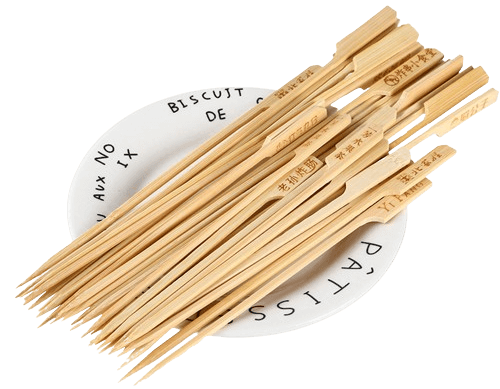Key Takeaways Table
| Aspect | Details |
|---|---|
| Historical Origins | Mastery of chopsticks involves understanding the correct handling techniques and cultural etiquette associated with their use. |
| Material Diversity | Initially made from bamboo and wood, chopsticks now come in metal, ivory, and even plastic. Bamboo remains the most eco-friendly option. |
| Cultural Significance | Beyond their practical use, chopsticks symbolize harmony, balance, and traditional Chinese values. |
| Global Influence | Chopsticks are used worldwide, influencing dining cultures and promoting sustainable practices. |
| Eco-Friendly Innovation | Ecostix Global leads in producing sustainable bamboo chopsticks, blending traditional craftsmanship with modern innovation. |
| Proper Usage and Etiquette | Mastery of chopsticks involves understanding the correct handling techniques and cultural etiquettes associated with their use. |
| Sustainability Efforts | The push towards reusable and eco-friendly chopsticks aligns with global sustainability goals. |
In the vast landscape of culinary tools, few possess the cultural resonance and historical depth of Chinese chopsticks. This simple yet profound dining instrument, a pair of equal-length sticks, has been pivotal in Asian cuisine for millennia. Originating in ancient China, chopsticks have woven a rich narrative through time, symbolizing more than just a method for consuming food—they represent the ingenuity, tradition, and evolving ethos of a civilization.
The Origins and Evolution of Chopsticks
The journey of chopsticks began over 3,000 years ago, evolving from mere cooking utensils to an integral component of dining etiquette. Ancient Chinese philosophers, particularly Confucius, extolled the virtues of chopsticks, advocating their use as harmonious and non-violent dining instruments. This philosophical endorsement underscores a transition—chopsticks were not merely tools but carriers of moral and cultural values.
Materials and Craftsmanship: A Diverse Spectrum
From the earliest bamboo and wood versions to modern bamboo, metal, and ivory chopsticks, the material evolution of chopsticks mirrors societal changes and technological advancements. Bamboo, in particular, stands out for its environmental sustainability, a principle deeply ingrained in the mission of Ecostix Global. Our dedication to producing high-quality, sustainable bamboo chopsticks reflects a commitment to eco-conscious living, marrying traditional craftsmanship with modern innovation.
Mastering the Use: Techniques and Etiquette
Understanding chopstick etiquette is crucial for anyone looking to master their use. Proper grip and handling not only facilitate a more authentic dining experience but also pay homage to the cultural nuances that chopsticks carry. Key etiquettes include not pointing with chopsticks, avoiding sticking them vertically into a bowl of rice (a gesture associated with funerals), and never using them to move bowls or plates.
Chopsticks Around the World: Cultural Exchange and Global Influence
As symbols of Chinese culture, chopsticks have traversed global boundaries, promoting a unique blend of culinary tradition and sustainable practice. At Ecostix Global, we envision a world where bamboo chopsticks play a pivotal role in daily life worldwide, encouraging a shift toward more sustainable dining practices. This vision aligns with global efforts to reduce reliance on non-renewable materials, making chopsticks not just a tool for eating but a vehicle for environmental stewardship.
Chopsticks, in their simplicity, embody the balance between tradition and modernity, function and form, culture and sustainability. As we continue to explore the multifaceted narrative of chopsticks, from their historical roots to their place in contemporary dining and environmental advocacy, we invite readers to join us in appreciating and promoting the sustainable use of bamboo chopsticks. Through this journey, we not only honor a rich cultural heritage but also contribute to a more sustainable future, one pair of chopsticks at a time.
Preserving Tradition While Embracing Innovation
The push for sustainability in dining utensils has led to a renaissance in how chopsticks are viewed and used globally. At Ecostix Global, our focus is not only on preserving the traditional essence and functionality of chopsticks but also on innovating to ensure they contribute to ecological balance and sustainability. Through advanced production methods and sustainable practices, we strive to reduce environmental impact without compromising on quality or cultural authenticity.
The Role of Bamboo in Sustainable Practices
Bamboo stands out as an exemplary material for chopsticks for several reasons:
- Rapid Growth: Bamboo is one of the fastest-growing plants on Earth, making it a highly renewable resource.
- Biodegradability: Unlike plastic, bamboo chopsticks decompose naturally, returning valuable nutrients to the earth.
- Carbon Sequestration: Bamboo forests absorb carbon dioxide and release 35% more oxygen than an equivalent stand of hardwood trees.
By choosing bamboo chopsticks, consumers take an active role in promoting environmental health. Ecostix Global’s range of bamboo products not only offers a sustainable dining tool but also educates and encourages consumers to make eco-friendly choices across all aspects of their lives.
Advantages of Bamboo Chopsticks
Bamboo chopsticks offer several advantages over their counterparts made from other materials:
- Durability and Safety: Properly treated bamboo chopsticks are strong, durable, and safe for use, resisting heat and preventing the transfer of heat, making them ideal for hot dishes.
- Ease of Maintenance: Bamboo chopsticks are easy to clean and maintain, with certain types being dishwasher-safe. For more on caring for your bamboo chopsticks, visit our guide on how to clean bamboo chopsticks.
- Aesthetic and Functional Design: Bamboo chopsticks come in various designs and finishes, combining functionality with aesthetic appeal to enhance the dining experience.
Making the Shift: From Disposable to Reusable
The environmental impact of disposable chopsticks, particularly those made from non-renewable materials, has led to a significant shift towards reusable options. Ecostix Global’s reusable bamboo chopsticks represent a step forward in this direction, offering a sustainable alternative that can significantly reduce waste and resource consumption.
Conclusion
Chopsticks are more than just eating utensils; they are a reflection of cultural heritage, an example of sustainable innovation, and a tool for environmental advocacy. As Ecostix Global continues to lead in the production and promotion of bamboo chopsticks, we invite individuals and businesses alike to join us in making sustainable choices that benefit our planet.
We believe that through informed choices and a commitment to sustainability, we can all contribute to a healthier, more sustainable world—one pair of bamboo chopsticks at a time.
For more information on our products and how you can contribute to sustainable living, visit Ecostix Global. Together, let’s embrace the beauty of tradition while paving the way for a sustainable future.



